Do you REALLY need to wash your face every night? Experts reveal the useless skincare habits that EVERYONE should quit – and it could save you HUNDREDS of dollars
Every time you open TikTok or Instagram Reels to check out your favorite beauty influencers, it may seem like there’s always a new step to add to your skincare routine — not to mention more money to spend on another viral product.
Some experts recommend double cleansing, while others recommend only washing your face at night. What about using an eye and face cream, or coffee grounds for exfoliation?
But in the end, is all this really necessary? To help cut through the chaos, FEMAIL has enlisted a group of dermatologists and beauticians to reveal what you should spend your money on and what is just a cash grab.
With the skincare industry offering a wider (and more expensive) range of products than ever before, it can be difficult to pick out the effective moisturizer from the gimmicky lotion.
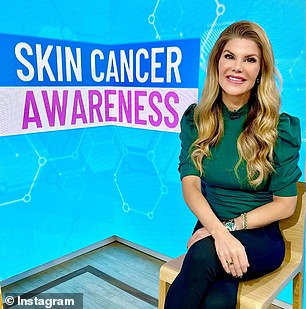
FEMAIL spoke to a number of dermatologists and beauticians, such as Sofie Pavitt (left) and Dr. Dendy Engelman (right) to discover which skin care habits you can abandon
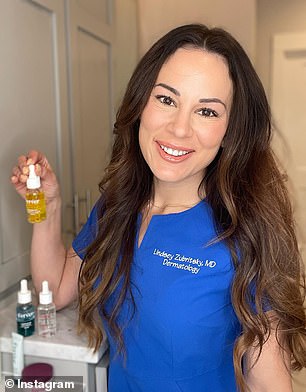
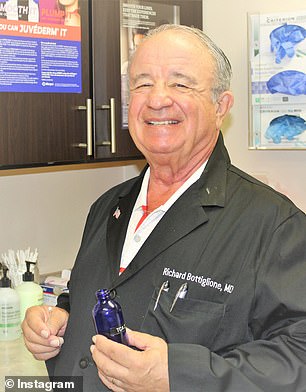
Dermatologists Dr. Lindsey Zubritsky (left) and Dr. Richard Bottiglione also contributed to FEMAIL
First it was snail slime, then rosemary oil, and – more recently – there has been a huge rise in the number of young girls, dubbed ‘Sephora tweens’, using products from expensive skincare brands like Drunk Elephant and Sol de Janeiro everywhere. their faces and bodies.
Kourtney Kardashian’s 11-year-old daughter Penelope even gained viral fame in December after showing off her $500 beauty routine – with experts later warning that such a complex range of products was likely doing more harm than good to her young skin.
In an effort to save face – and your wallet – this panel of experts has broken down exactly which skincare steps they consider essential, and which trendy rituals can be ignored.
Beware of over-washing or over-cleaning the face
A common habit to watch out for is over-cleansing or over-washing your face, says Dr. Lindsey Zubritsky, better known as @dermguru on social media, told DailyMail.com.
While it may seem like you can buff away your blemishes with the latest cleanser, that’s just not the case.
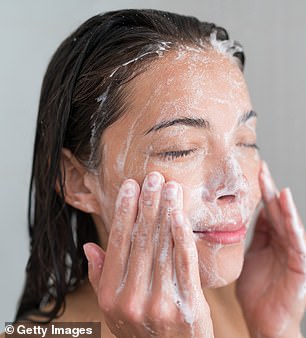
While it may seem like you can buff away your blemishes with the perfect cleanser, that’s just not the case (stock image)
‘So many people think they can scrub or wash away their acne or textured skin. In reality, this type of skin needs to be treated with care,” she explained to DailyMail.com.
“For most people, you only need to cleanse once or twice a day or after sweating.”
dermatologist Dr. Dendy Engelman from the Shafer Clinic in New York recommends cleansing in the morning, especially if you use a retinol the night before.
“Morning cleansing is imperative if you use retinol the night before as it can cause sun sensitivity, or if you have a morning workout to remove any oil that may have built up on the skin’s surface,” she said.
Say goodbye to your 10-step skincare routine: here’s what you really need
While you may feel pressured to use all the serums, creams, and oils you can get your hands on, according to the experts, it’s really better to go back to basics — and it’ll save you some money, too.
Dr. Richard Bottiglione, founder of Skin care of the choice of dermatologiststold DailyMail.com that you didn’t need an extensive skincare routine, nor did you need to try every new product that came on the market.
“Most skin care ingredients, in my opinion, are of very little value,” explained Dr. Bottiglione to DailyMail.com.
‘Skin care is something personal. Find what works for you and your skin, not what’s trending.’
Esthetician from New York City Sophie Pavitt has also seen customers overloading with products and not using products that address their specific skin concerns.
“The perfect example is tretinoin – everyone wants to use it, but it’s intense and can be very irritating,” Pavitt, the founder of eponymous skincare brand Sofie Pavitt Face, told DailyMail.com.
“You might be better off using an off-the-shelf retinol product instead of an RX version of it,” she shared.
Pavitt also recommends that customers use just one active ingredient in their skin care, applied after cleansing.
For a standard skin care routine you really only need a few products.
Dr. Bottiglione recommends using a cleanser, toner, exfoliator, and moisturizer, while Dr. Engelman proposes something similar: a double cleansing system, a firming and active treatment, and a moisturizer.
“After double cleansing, I recommend using a toner that is best suited to your skin type and targeted to your needs – whether that be brightening, hydrating and/or illuminating,” explained Dr. Dendy out to DailyMail.com.
‘Then you can undergo active treatment. The most common one I recommend for a nighttime routine is some form of vitamin A.”
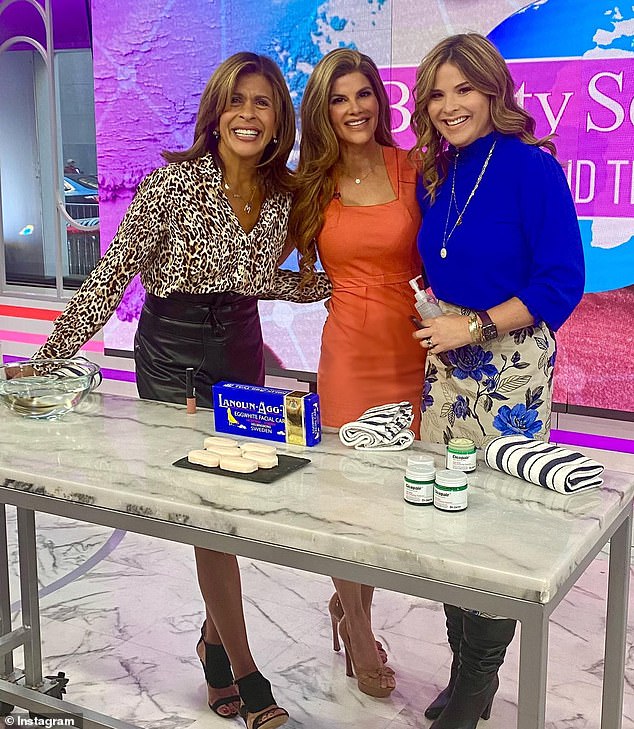
‘If you have super dry, sensitive skin or have inflammation (eczema, psoriasis, etc), over-cleansing the skin may be too much, but twice a day shouldn’t be a problem in most cases’ , says Dr. Engelman told DailyMail.com
Different skin types may forego certain practices, such as double cleansing
Naturally, according to dermatologists, there are different protocols for different skin types.
If you suffer from dry skin, things like double cleansing, according to Dr. Zubritsky may not be good for your skin.
“I would also consider skipping, or at least minimizing, aggressive exfoliation,” she explained. ‘Toners are also optional.’
It is also important to avoid over-cleansing the skin if you suffer from skin conditions such as eczema.
‘If you have super dry, sensitive skin or have inflammation (eczema, psoriasis, etc.), over-cleansing the skin may be too much, but twice a day shouldn’t be a problem in most cases.’ , says Dr. Engelman told DailyMail.com.
And for people with oily skin, Dr. Zubritsky to stay away from slugging, in which people use a petroleum-based ointment such as petroleum jelly instead of a moisturizer, as well as skin care oils.
She also noted that people with oily skin “can only moisturize once a day.”
Safety first! Skip the DIY treatments at home; these can pose a serious risk
While at-home skin care treatments may seem simple, it’s best to avoid them because they can cause infections, says Dr. Dendy.
“Some DIY trends, such as pore vacuuming and microneedling at home, I would advise against and move to a professional office environment,” Dr. Dendy to DailyMail.com.
She explained that some of these at-home treatments were unregulated and not approved by the FDA, which meant they could be “unsafe and unreliable.”
“At-home microneedling can cause infections, irritation, micro-tears and scars on the skin,” the doctor warned.
Dr. Zubritsky also mentioned skin enamel as another potential home hazard.
On social media, some swear by applying ice directly to their faces to reduce puffiness in the morning, but the dermatologist is not a fan.
“In theory, applying ice to the skin can help reduce inflammation and redness, but applying ice directly to the skin, as seen on TikTok, can do more harm than good,” the Mississippi-based doctor told DailyMail. com.
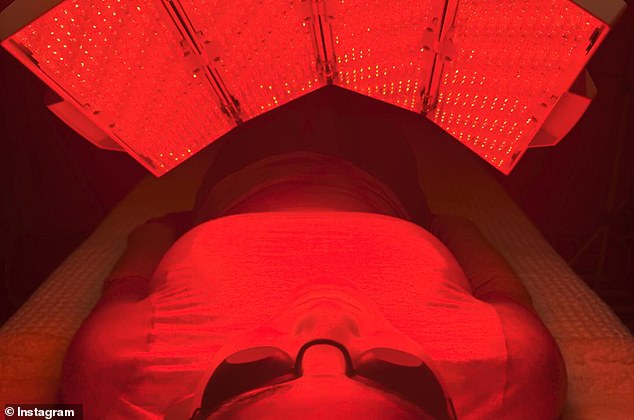
Instead of performing DIY treatments like microneedling at home, Dr. Dendy recommends having the treatment done by a professional
“Direct application of ice to the skin can lead to a damaged barrier, worsening redness and possible burning,” she continued.
And with summer just around the corner, Dr. warned. Zubritsky also favors “sun contouring,” a practice in which people apply sunscreen only to certain areas of the face to achieve a “contoured look” with a tan.
The goal is to achieve a natural contour and be able to go makeup-free, but the dermatologist says this is one of the “more dangerous trends” she’s seen on social media.
“No amount of sun exposure or tanning is safe for our skin,” she warned. ‘Over time, this can lead to photodamage and an increased risk of skin cancer.’
